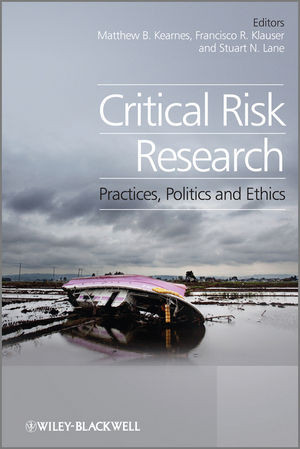

Most ebook files are in PDF format, so you can easily read them using various software such as Foxit Reader or directly on the Google Chrome browser.
Some ebook files are released by publishers in other formats such as .awz, .mobi, .epub, .fb2, etc. You may need to install specific software to read these formats on mobile/PC, such as Calibre.
Please read the tutorial at this link: https://ebookbell.com/faq
We offer FREE conversion to the popular formats you request; however, this may take some time. Therefore, right after payment, please email us, and we will try to provide the service as quickly as possible.
For some exceptional file formats or broken links (if any), please refrain from opening any disputes. Instead, email us first, and we will try to assist within a maximum of 6 hours.
EbookBell Team

4.1
10 reviewsThis approach is based upon the core assumption that: to make a difference in the study of risk, we must move beyond what we usually do, challenging the core assumptions, scientific, economic and social, about how we study, frame, exploit and govern risk. Hence, through a series of essays, the book aims to challenge the current ways in which risk-problems are approached and presented, both conceptually by academics and through the framings that are encoded in the technologies and socio-political and institutional practices used to manage risk.
In addressing these questions, the book does not attempt to offer a model of how risk research 'should' be done. Rather, the book provides, through illustration, a challenge to the ways in which risk research is framed as 'problem-solving.' The book's ultimate objective aims to increase critical debate between different disciplines, approaches, concepts and problems.Content:
Chapter 1 Introduction: Risk Research after Fukushima (pages 1–20): Matthew B. Kearnes, Francisco R. Klauser and Stuart N. Lane
Chapter 2 Practices of Doing Interdisciplinary Risk?Research: Communication, Framing and Reframing (pages 21–42): Louise J. Bracken
Chapter 3 Religion and Disaster in Anthropological Research (pages 43–58): Claudia Merli
Chapter 4 ‘Risk’ in Field Research (pages 59–75): Sarah R. Davies, Brian R. Cook and Katie J. Oven
Chapter 5 Finding the Right Balance: Interacting Security and Business Concerns at Geneva International Airport (pages 77–97): Francisco R. Klauser and Jean Ruegg
Chapter 6 Governing Risky Technologies (pages 99–124): Phil Macnaghten and Jason Chilvers
Chapter 7 Technologies of Risk and Responsibility: Attesting to the Truth of Novel Things (pages 125–147): Matthew B. Kearnes
Chapter 8 Ethical Risk Management, but Without Risk Communication? (pages 149–172): Stuart N. Lane
Chapter 9 In the Wake of the Tsunami: Researching Across Disciplines and Developmental Spaces in Southern Thailand (pages 173–196): Jonathan Rigg, Lisa Law, May Tan?mullins, Carl Grundy?Warr and Benjamin Horton
Chapter 10 Social Work in Times of Disaster: Practising Across Borders (pages 197–218): Lena Dominelli
Chapter 11 Conclusion: Reflections on ‘Critical’ Risk Research (pages 219–236): Stuart N. Lane, Francisco R. Klauser and Matthew B. Kearnes